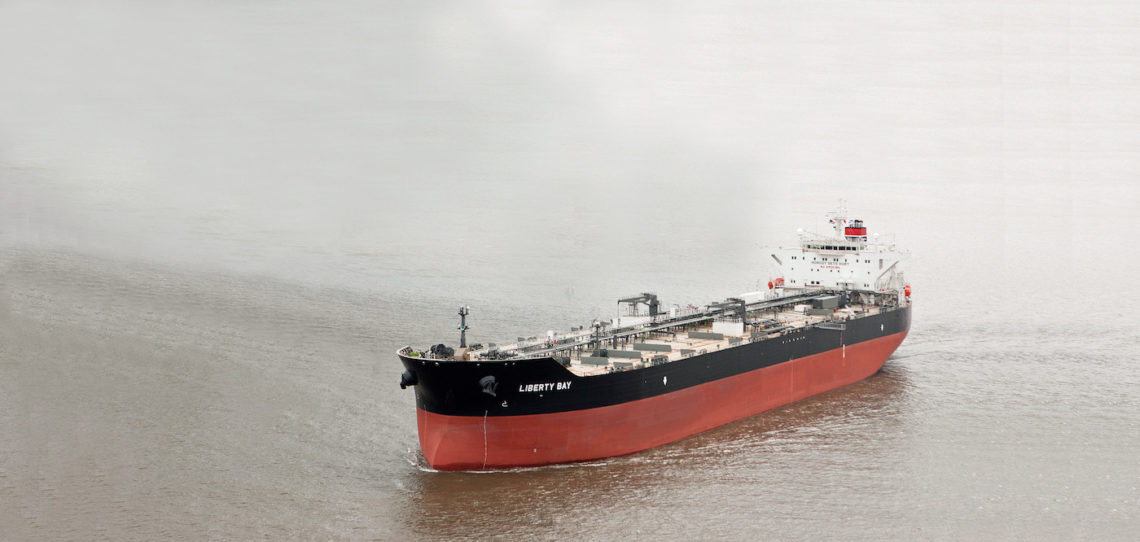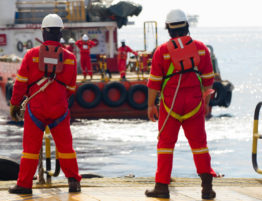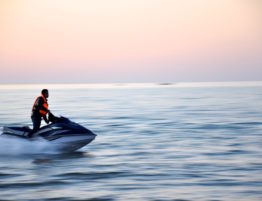
What is Maritime Law?
Maritime law, often called admiralty law, is a set of legal rules and practices governing the business of employment and transportation of people and goods over or near navigable waters. If you have been injured while employed by a vessel or while you were a social guest on a vessel, it is important to consult with attorney as soon as possible to help you understand what conditions must be met to apply maritime law.
“Navigable waters” is a legal term describing all waters that are capable of transporting people or cargo between the states and other countries. Inland lakes that do not connect to an interstate waterway or the open sea would not meet this test. As a matter of law, the open sea and waterways used for interstate commerce (such as rivers) are navigable waters.
For an incident to trigger maritime jurisdiction it must have created a potential hazard to traditional commerce and there must be a sufficient relationship between the incident and traditional maritime activities.
Maritime Claims
Maritime law applies to the operation of most types of vessels, from the largest ocean going cargo vessel, to fishing vessels, to Jet Skis®. It also applies to more than accidents; it governs employment issues such as wage and labor disputes or sexual and racial harassment, insurance disputes, maritime property damage, loss of cargo, damage to shoreside property by vessels, repairers of vessels, fishing rights and other issues.
People who make their living working on boats and qualify as “seamen” have special remedies available to them. Congress enacted the Maritime Marine Act of 1920, commonly known as the Jones Act, which provides substantial benefits to seamen injured at sea.
The Jones Act
Boating accidents may injure a variety of people who work on a boat or ship. The Jones Act is a federal law that extends the provisions of the Federal Employers’ Liability Act (FELA), a statute that provides remedies for injured workers, in order to provide similar remedies for seamen.
If an injured crewmember can prove negligence by the employer, then the injured worker may recover damages for pain, suffering, disability and future medical benefits.
Death on the High Seas Act (DOSHA)
The Death on the High Seas Act is a federal statute that creates a cause of action for a spouse, dependent or family member of an individual who has been killed on the high seas due to a wrongful act, negligence or disrepair. 46 U.S.C.A. § 30302. According to statute, the high seas are considered those beyond three nautical miles from the United States shore. Family members of deceased crew members may seek compensation for financial loss they have suffered due to the deaths of their loved ones. If multiple individuals have suffered losses, the court will apportion the amount of compensation in accordance to the amount of loss suffered by each individual. If you have suffered the loss of a loved one under DOHSA, you normally have three years from the time the death occurred to bring your claim for compensation.
Los Angeles Area Maritime Law Attorneys – Long Beach, CA Trial Lawyers
Maritime or admiralty law is federal law that differs significantly from the state laws governing personal injury claims. For injured seamen, claims under the Jones Act are not the same as typical workers’ compensation claims.
If you are the victim of a maritime accident, you may be entitled to compensation for your injury. For a free consultation with an experience lawyer to discuss possible claims and your legal rights under maritime law, contact our Southern California Personal Injury law firm today.





